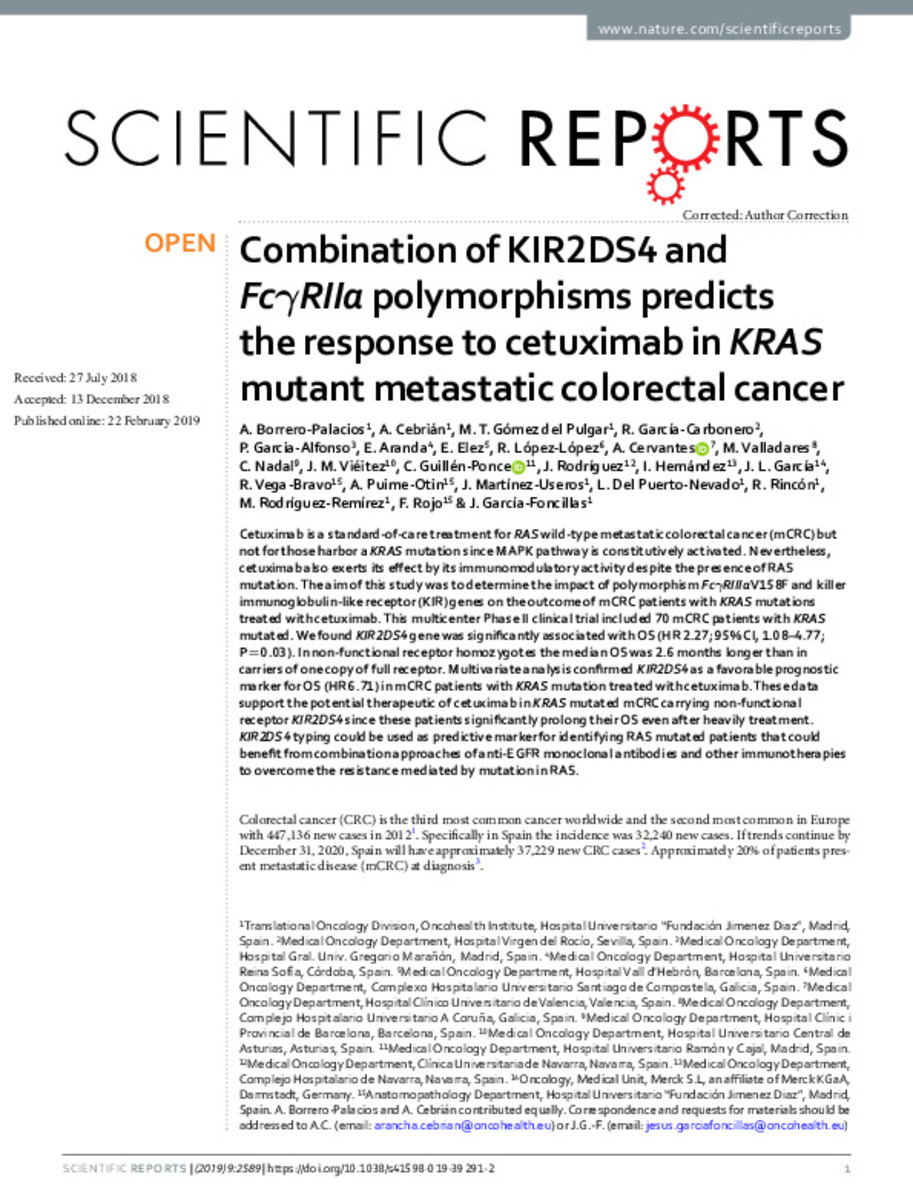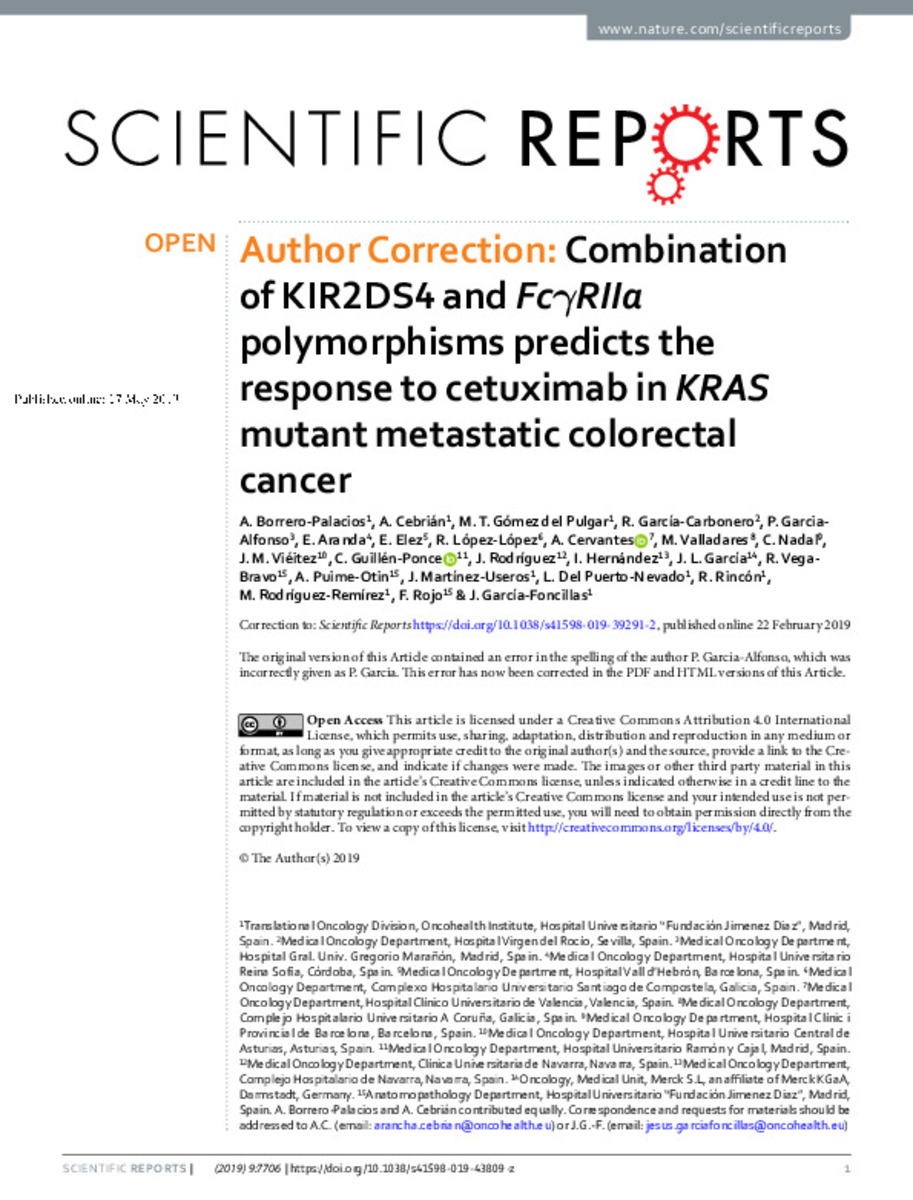Combination of KIR2DS4 and FcγRIIa polymorphisms predicts the response to cetuximab in KRAS mutant metastatic colorectal cancer
Palabras clave :
Materias Investigacion::Ciencias de la Salud
Colorrectal cancer
Fecha de publicación :
2019
Editorial :
Nature Publishing Group
Nota:
This article is licensed under a Creative Commons Attribution 4.0 International License.
The original version of this article contained an error in the spelling of the author P. Garcia-Alfonso, which was incorrectly given as P. Garcia.
Cita:
Borrero-Palacios, A. (A.); Cebrián, A. (A.); García-Carbonero, R. (R.); et al. "Combination of KIR2DS4 and FcγRIIa polymorphisms predicts the response to cetuximab in KRAS mutant metastatic colorectal cancer". Scientific Reports. 9 (1), 2019, 2589
Aparece en las colecciones:
Estadísticas e impacto
0 citas en

Los ítems de Dadun están protegidos por copyright, con todos los derechos reservados, a menos que se indique lo contrario.








